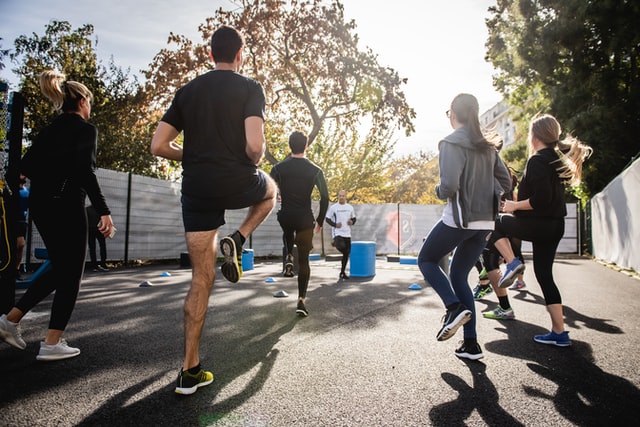Waking up in the morning can be one of the most challenging parts of the day. Especially if you haven’t had the restful and rejuvenating night’s sleep you needed.
If you want to wake up better, we suggest looking at how to find ways to sleep better first.
If you yearn to wake up with a spring in your step and start your day with ease, then it’s vital to create healthy habits before bed, sleeping, and waking up. One doesn’t happen without the other.
Finding ways to feel refreshed after you get out of bed and carry this freshness into your day ahead is so important.
Tired of yawning your way through the day? We have some practical ideas to help you wake up better!
The Science of Waking Up
You may think that when you open your eyes, this is the moment that you’re you fully wake up. But you actually start the process of awakening roughly one hour before you open your eyes.
The body goes into preparation mode and slowly starts raising your core temperature. It also increases your blood pressure slightly, while serotonin and cortisol rush through the brain. Your neurons and neurological activity start becoming more active and gently wake you from your slumber.
There’s so much more than we realize going on under the surface.
As they say, knowledge is power.
Let’s take a look at 4 valuable practical suggestions you can try to be your best self from the moment you wake up:
- Set a Regular Alarm (& Don’t Hit Snooze!)
If you have the luxury of waking up naturally without an alarm, then you’ll find this tends to happen during a light sleep phase. Your body naturally allows you to wake up during a non-rapid-eye-movement (NREM) sleep state.
But if you’re using an alarm to wake up, then it could go off during rapid-eye-movement sleep (REM) state. This is the deepest part of your sleep cycle and can cause you to wake up feeling startled, confused and still tired. This alarm-caused abrupt interruption of REM sleep can also trigger stress responses in the body and brain, especially if your alarm time is erratic and changes from day to day.
Hitting the snooze button may feel so satisfying in the moment, but may also cause negative effects. When you wake up, hit the snooze button, and quickly fall asleep again, you trigger Sleep Fragmentation. This means you’re disrupting your sleep cycle. Sleep Fragmentation can cause you to feel sleepy, groggy, tired, and even irritable throughout the remainder of your day. It’s best to get up when that alarm goes off and start your morning routine.
Quick tips include:
- Finding an alarm tone that suits and soothes you
- Sticking to a set time daily to wake up
- Observing how you feel when you wake up and adjust the alarm time until you find your waking up “sweet spot”
- Don’t hit the snooze button, move your alarm further away from you so that you have to get up to turn it off
- Get That Natural Light In Your Life
Exposing yourself to natural daylight first thing in the morning is one of the healthiest things you can do. Natural light assists in regulating your circadian rhythms and can help to improve your quality of sleep.
Your circadian rhythm is your internal body clock. It runs on a 24-hour cycle and can even predetermine whether you rise early, or prefer being a night owl.
Letting natural light into your room and getting yourself outside for your morning cup of tea or coffee is key. It’ll assist your body in regulating its circadian rhythm, therefore helping you sleep and wake up better.
- Create The Ultimate Bedtime Routine
Having a comfortable bed with a supportive mattress, the perfect pillows, and bedding that keeps you at just the right temperature are all part of a good night’s sleep. But it’s what you do before you jump into bed that really counts.
What you do before you go to sleep can determine what kind of rest you get, and will therefore affect how you wake up.
Here are a few things to avoid before you go to sleep:
- Caffeine. Some people can indulge in coffee, caffeinated soft drinks, or chocolate before they go to sleep, and it doesn’t affect them at all. But if you have a more sensitive system and find your sleep routine needs some TLC, steer clear of anything with caffeine in it at least two hours before bed.
- Blue light. All screens have a blue light undertone. Studies have shown that too much blue light exposure can have negative effects on our health. Too much screen time has been linked to a rise in insomnia, unhealthy sleep patterns, and can even negatively affect hormone production. Steering clear of electronic devices before bed will help you have a deeper, more restful sleep.
- Napping too late in the afternoon or spending too much time in bed during the day can also affect your sleep routine. If you want to nap, try napping earlier in the day to ensure you’re sufficiently tired later on.

- Make Mornings About Selfcare
How you decide to take care of yourself first thing in the morning can set the tone for your entire day. Taking some extra time looking after yourself could be just the thing you need to lift your spirits.
- Drink lemon and ginger water on waking. This is a wonderful way to rehydrate your body and to give yourself a vitamin C boost. It’s also a refreshing drink and is sure to wake you up with a zing.
- Brush your teeth. There’s nothing like a fresh smile and a clean mouth to make you feel awake and confident
- Use a refreshing shower gel. A shower gel that’s designed to refresh and invigorate is a great way to wake up. Alternatively, choose one with a scent you love.
- If you aren’t a “shower in the morning” kind of person, then having a good skincare routine is a definite must. Make sure to cleanse, tone and moisturize with your favorite skincare products for that fresh glow that lasts all day.
It turns out that waking up better is all about sleeping. If you get the sleeping part right, the rest is easy!

